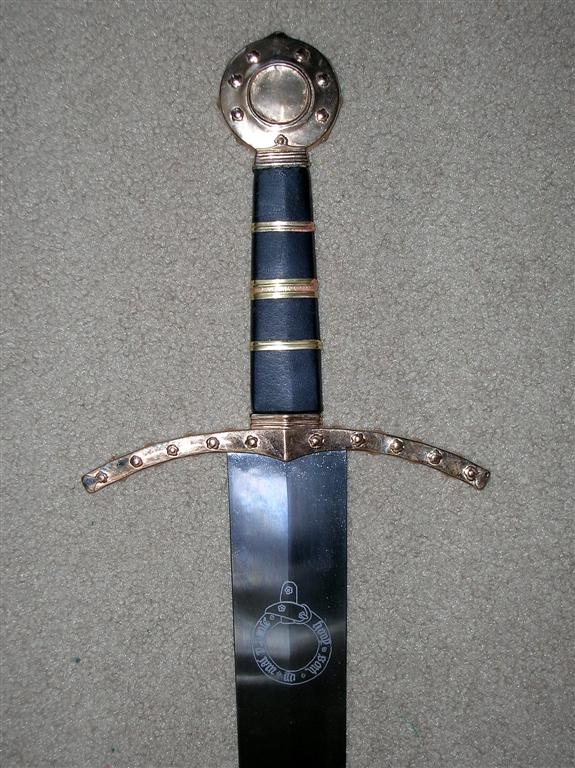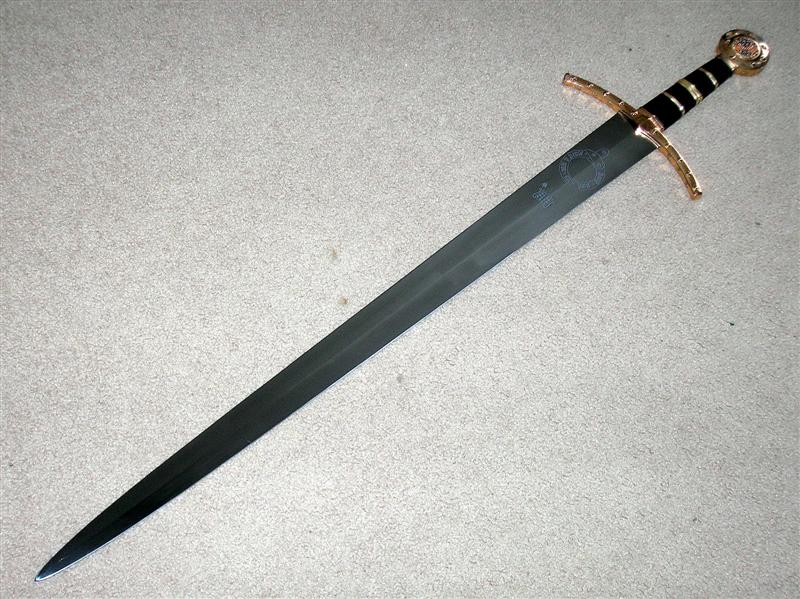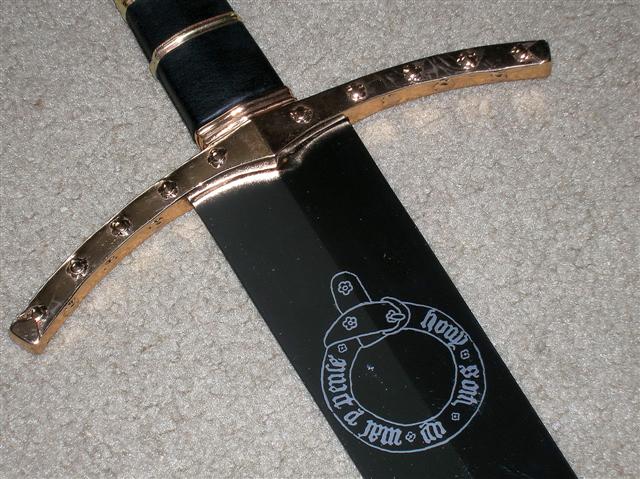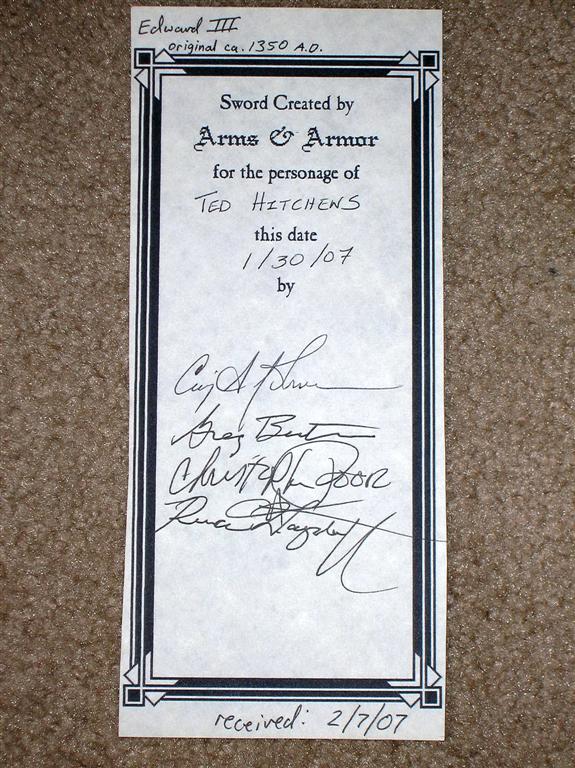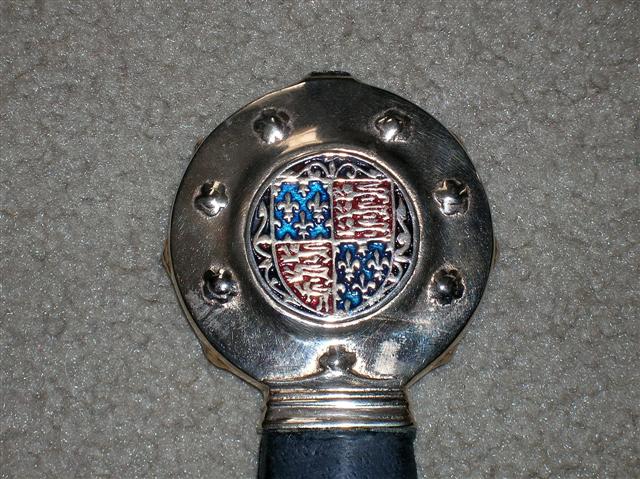Posts: 819 Location: Cincinnati, Ohio, USA
Fri 09 Feb, 2007 9:33 am
Thanks everyone for the kind words. It hasn't been quite a full decade but close enough (about six or seven years -- that's still a lengthy time to wait to purchase the sword that completes your collection! :) ).
Anyway, here's another picture of the sword showing the back of the pommel and (to my surprise) the emblem of the Garter is on the other side of the blade also. BTW, the mysterious portcullis symbol is only on the "front" side -- same side as the English coat of arms on the pommel. -Ted
 Attachment: 107.48 KB
Attachment: 107.48 KB
